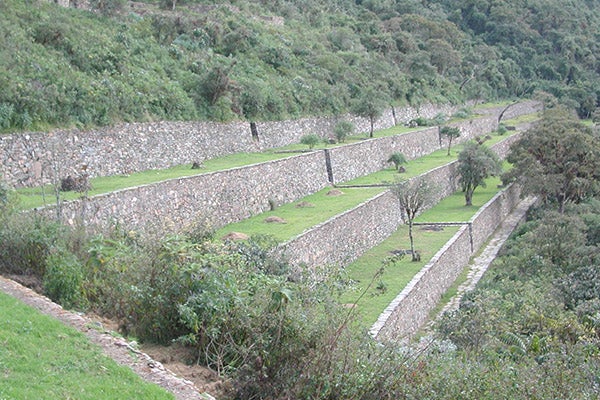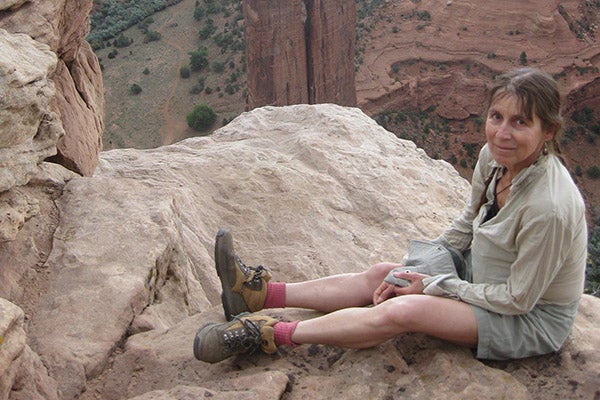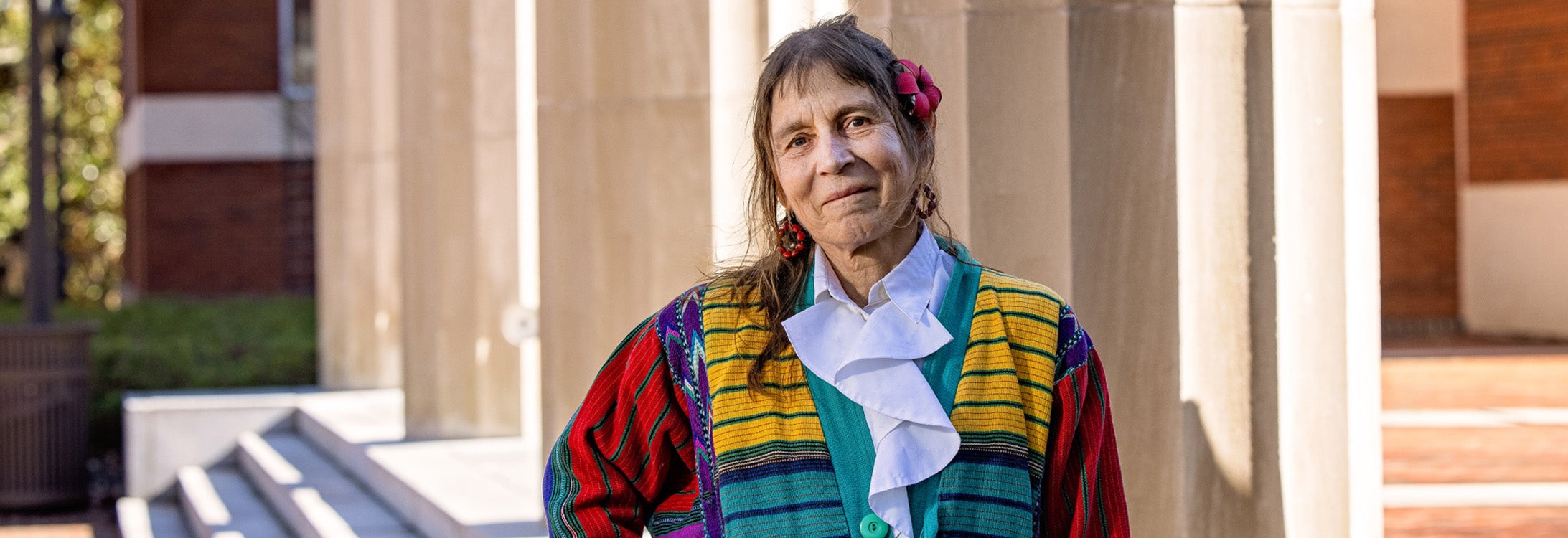VIVACIOUS VISUALS
Art history professor honored with university’s 5-Year Achievement for Research & Creative Activity Award
At first glance, Jessica Christie’s research doesn’t appear to have a connection with Greenville.
A German native who made her American home in the rugged Southwest, the visual artwork she studies in Arizona, Mexico and Peru harkens back to the age of the American Old West, not shipwrecks and pirates.
But the East Carolina University School of Art and Design professor, who was honored Tuesday with a Five-Year Achievement for Research & Creative Activity Award, takes the lessons she’s learned from Mesoamerica’s native cultures and ties them to the students she teaches.
“It’s all about respect,” Christie said. “The pre-contact and contemporary artwork that make up the focus of my research tells a story. It tells the relationships Indigenous people built and continue to construct with their environment and natural settings. They perceive all living beings as sentient, including animals, plants and the landscapes. It’s a philosophy that teaches us to respect people, places and things; a lesson we can continue to learn today.”
Visit this video on YouTube for closed-captioning.
Christie, who joined ECU in 2000, researches the three-dimensional and visual cultures of Indigenous communities in the Americas. From the Pueblo societies in North America to the Maya in Mexico and the Inka in Peru, she’s made a career studying their architecture and performance culture.
“The framework of my research examines their art and how it relates to a culture’s heritage,” she said. “What we learn from their artwork helps us understand the way these ancient people saw the world. It’s a very different take than we have today.”

Christie’s work has taken her as far from Greenville as Peru, including the Choquequirao and Sayhuite Incan sites in southern Peru. (Photo submitted by Jessica Christie)
In her latest volume, “Earth Politics of Cultural Landscapes and Intangible Heritage: Three Case Studies in the Americas,” Christie explores the legacy of colonialism in the Americas, examining historical value systems and how early cultures lived sustainably off the land. She reflects on how we can use these past values — love for the land and natural resources — and put them toward our economic models and community values in present times to create a more viable future.
“In my research I’ve learned that these past cultures had a better balance and relationship with others,” Christie said. “They didn’t live in the individualistic, self-centered and competitive way we’re trained and raised.”
Christie’s passion for the Southwest began burning at a young age.
“When I was a little girl, I read books about Native Americans and I was fascinated,” she said. “As I got older, I looked up these regions and learned more about them. I dreamed about physically being there. All I thought about was the vast, open land and what could be discovered. Integrating myself into the Southwest was a major motivation for moving to America.”
She eventually relocated to Texas where she earned her doctorate from the University of Texas at Austin before taking the position in Greenville.
She’s traveled all over the continent, from New Mexico to the Andes Mountains, but recently a new island caught her attention.

Christie’s research includes North American native art culture, including those of the Navajo in Arizona. (Photo submitted by Jessica Christie)
“We’re wrapping up my latest book and my dream is to close out my research career with a few more articles and case studies on a culture that’s new to me — native Hawaii,” Christie said. “I’d love to be able to establish a secondary research site on the Big Island. Polynesia and Pacific cultures are magic worlds to me now. The complicated and complex narratives that make up their histories and worldviews are fascinating.”
For now, Christie will keep sharing the art she’s studied over decades of work with ECU students.
“I hope that what I share in the classroom inspires students work toward a world in balance,” she said. “Connecting the present to the past is crucial to helping shape a more regenerative society. Decoding the messages and values found in visual art can help us plan for a better future.”
Jessica Christie is a former ECU Faculty Research Grant recipient and a Scholarship Award recipient from the ECU School of Art and Design, and was awarded two fellowships for her work from the Dumbarton Oaks Research Library in Washington, D.C.
She has written and edited numerous academic publications, including “Landscapes of Origin,” “Memory Landscapes of the Inka Carved Outcrops,” “Political Landscapes of Capital Cities,” and her latest book “Earth Politics of Cultural Landscapes and Intangible Heritage: Three Case Studies in the Americas.”
